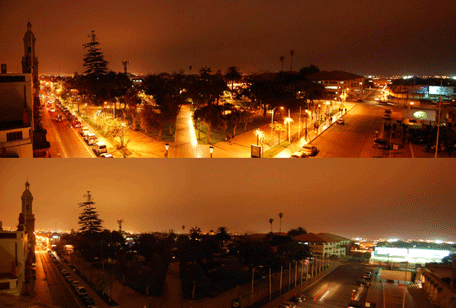
A Common Heritage
The Right to Starlight
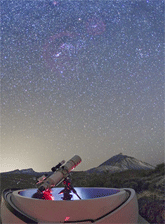 |
| News |
| Starlight Declaration |
| Starlight Reserves |
| Starlight Destinations |
| Objectives |
| Starlight Declaration |
| Calendar |
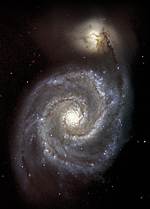
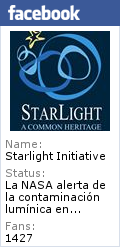
April 20th - 2010 The World Night in Defence of the Starlight |
||
|
THERE IS ANOTHER WAY TO LIGHT UP THE NIGHT SWITCH ON THE STARS! On April 20th, 2007 during the first International Starlight Conference, supported by IAC, UNESCO, IAU,UN-WTO, MaB, SCBD and CMs, it was agreed to promote annually the World Night in Defence of the Starlight as part of our cultural, scientific and environmental heritage. Every year on this date we remind ourselves of the need to preserve our right to view a dark night sky full of stars and to take steps to prevent its disappearance. This year, World Night in Defence of the Starlight falls within Astronomy Week 2010. A whole range of organizations have unified their efforts and activities this year in April to raise awareness about defending our starry skies all over the planet. The World Night on April 20th is an opportunity to get actively involved in many ways:
Declaration in Defence of the Night Sky and the Right to Starlight
|
|
This video has been devoloped by Sky Quality Protection Technical Office (OTPC) of the Instituto de Astrofísica de Canarias (IAC).
|
||
Symbolic switching-off in Plaza de Armas (Santiago, Chile), OPCC - The Office for the Protection of the Quality of the Sky of the North of Chile
|
||
 |
Dark Skies Awareness |
||||
 |
Global Astronomy Month One people - one sky Professional and amateur astronomers, educators and all astronomy enthusiasts worldwide are invited to celebrate the Universe in April 2010, during Global Astronomy Month – an international project that builds on the achievements of The International Year of Astronomy 2009, by combining a wide array of activities with the possibility of sharing experiences in real-time!. |
||||
 |
International Dark-Sky Week (NDSW) April 4 to 10, 2010 From April 4 through April 10, 2010, International Dark Sky Week celebrates the heritage of the nighttime sky by encouraging people to turn of unnecessary lights. The event began in 2003 as National Dark-Sky Week in the United States and officially became international in 2009, the International Year of Astronomy. The key to success is the broadest possible participation. |
||||
 |
3 - 16 March GLOBE at Night 2010 GLOBE at Night is an annual 2-week campaign in March. People all over the world record the brightness of their night sky by matching its appearance toward the constellation Orion with star maps of progressively fainter stars. They submit their measurements on-line and a few weeks later, organizers release a map of light-pollution levels worldwide. Over the last five GLOBE at Night campaigns, volunteers from over 100 nations have contributed 51,000 measurements. A record number of over 16,000 of these measurements came from this year’s campaign. |
||||
 |
Earth Hour 2010 Climate Change On March 27, 2010 at 8:30 pm, millions of people around the world will come together once again to make a bold statement about their concern for climate change by doing something quite simple—turning off their lights for one hour. Earth Hour symbolizes that, by working together, each of us can make a positive impact in the fight against climate change. In March 2009, during the International Year of Astronomy, more than 4100 cities in 87 countries and over 1 billion people around the world turned off their lights for Earth Hour to demonstrate their commitment to slowing the effects of climate change. |
||||
 |
The World At Night (TWAN) Earth and Sky Photo Contest Winners Announced Winners of the International Earth and Sky Photo Contest on Dark Skies Importance were announced last week by The World At Night (TWAN) and Dark Skies Awareness. Submissions to the contest had been received during the second half of International year of Astronomy 2009. |
||||
STARLIGHT DECLARATION |
|||||
| From Earth to the Universe Astronomy Education From Earth to the Universe (FETTU) is a collection of astronomical images that will showcase the most dramatic views of our Universe. The images represent the incredible variety of astronomical objects that are known to exist – planets, comets, stars, nebulae, galaxies and the clusters in which they congregate – and is being exhibited in over 250 locations throughout the world in 2009 and 2010. |
|||||
 |
Support |
||||
The Right to Starlight |
|||||
 |
Publication Starlight: A Common Heritage Proceedings of the International Conference in Defence of the Quality of the Night Sky and the Right to Observe the Stars. 16 MB |
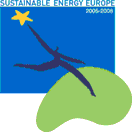
The proposal to promote April 20th as "World Night for the Right to Observe the Stars" was approved during the Starlight Conference held in 2007 in La Palma. The Conference was jointly organized by the La Palma Biosphere Reserve, the IAC (Instituto de Astrofísica de Canarias), the Canary Islands Government, the Spanish Ministry of the Environment, IAU (International Astronomical Union), the MaB programme and the UNESCO.
![]()
This proposal was presented at the Conference by the Government of the Canary Islands to commemorate the day when the Declaration would be approved. “The World Night” original idea was conceived by the Chairman of the Starlight Scientific Committee, Prof. Jafar Jafari.
![]()

